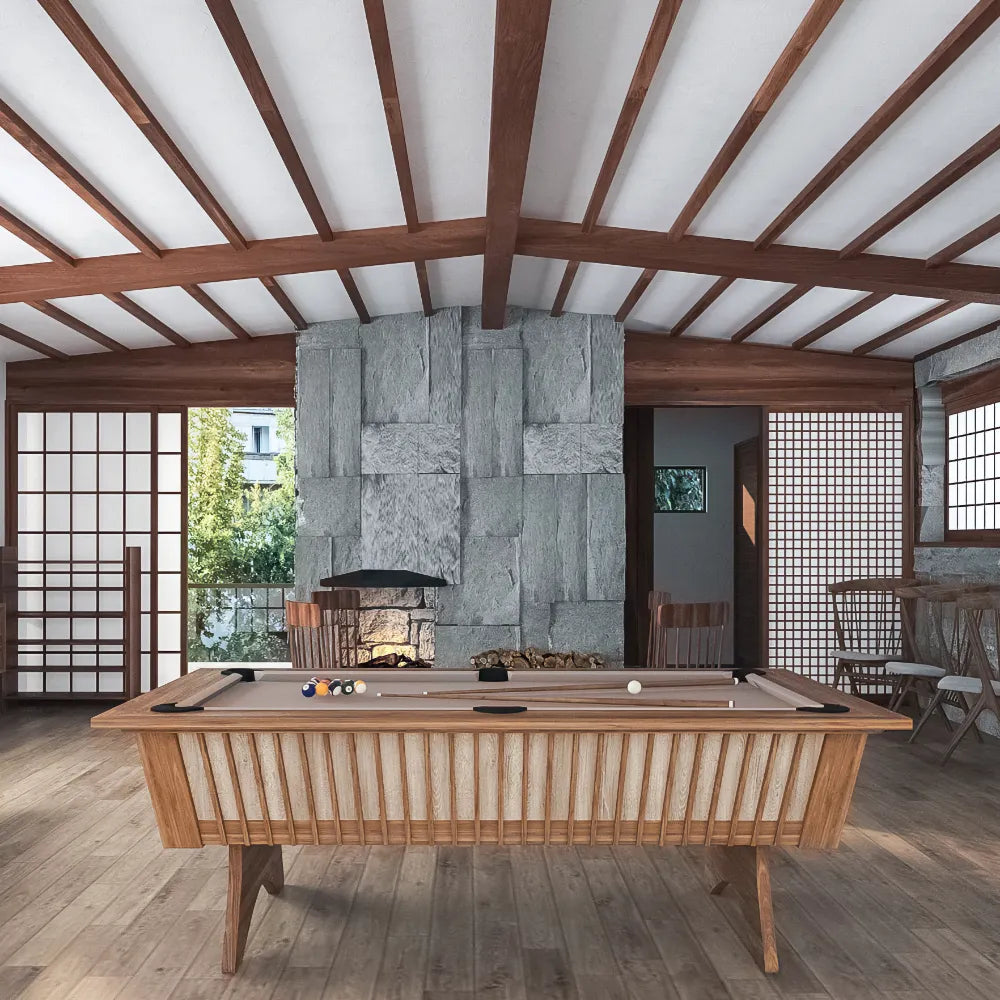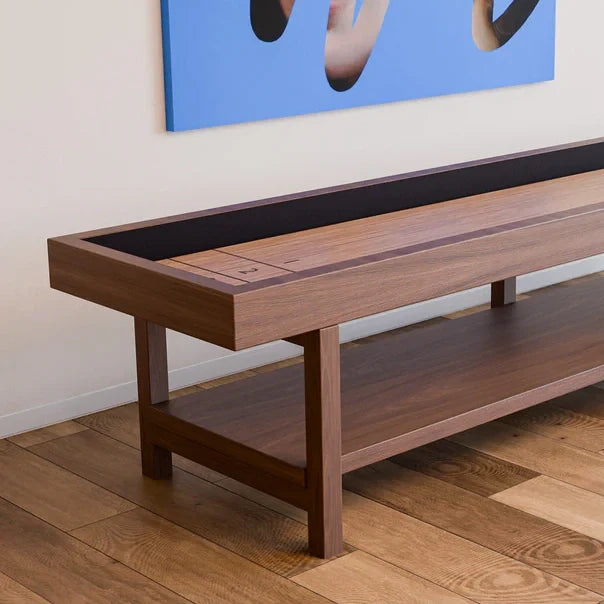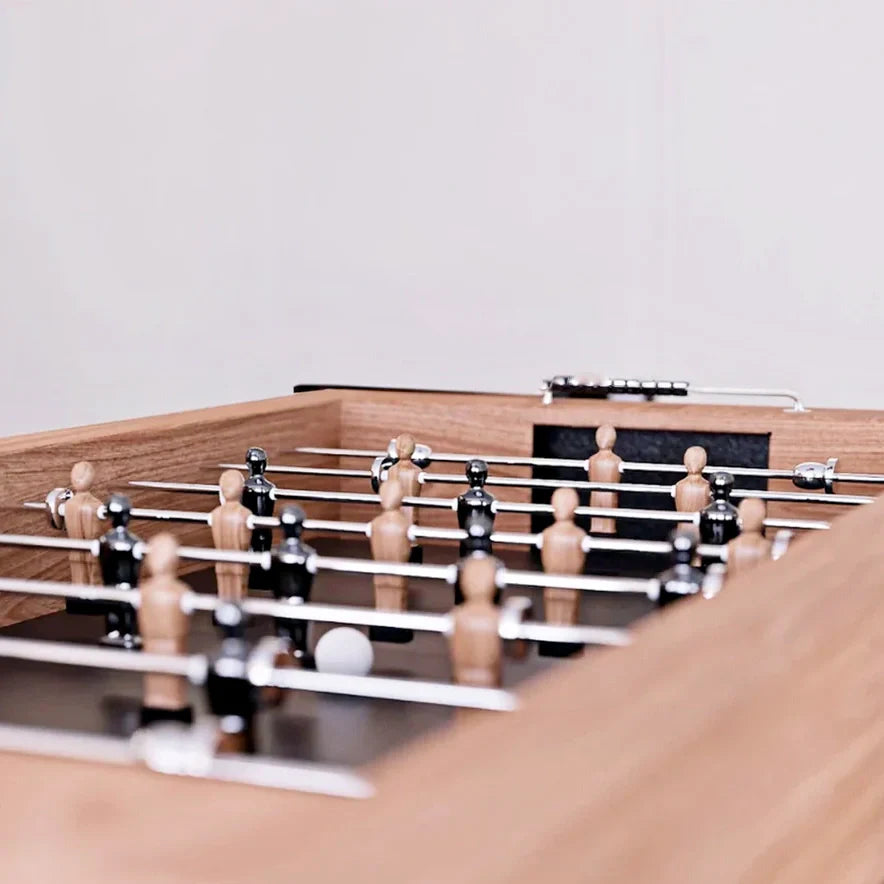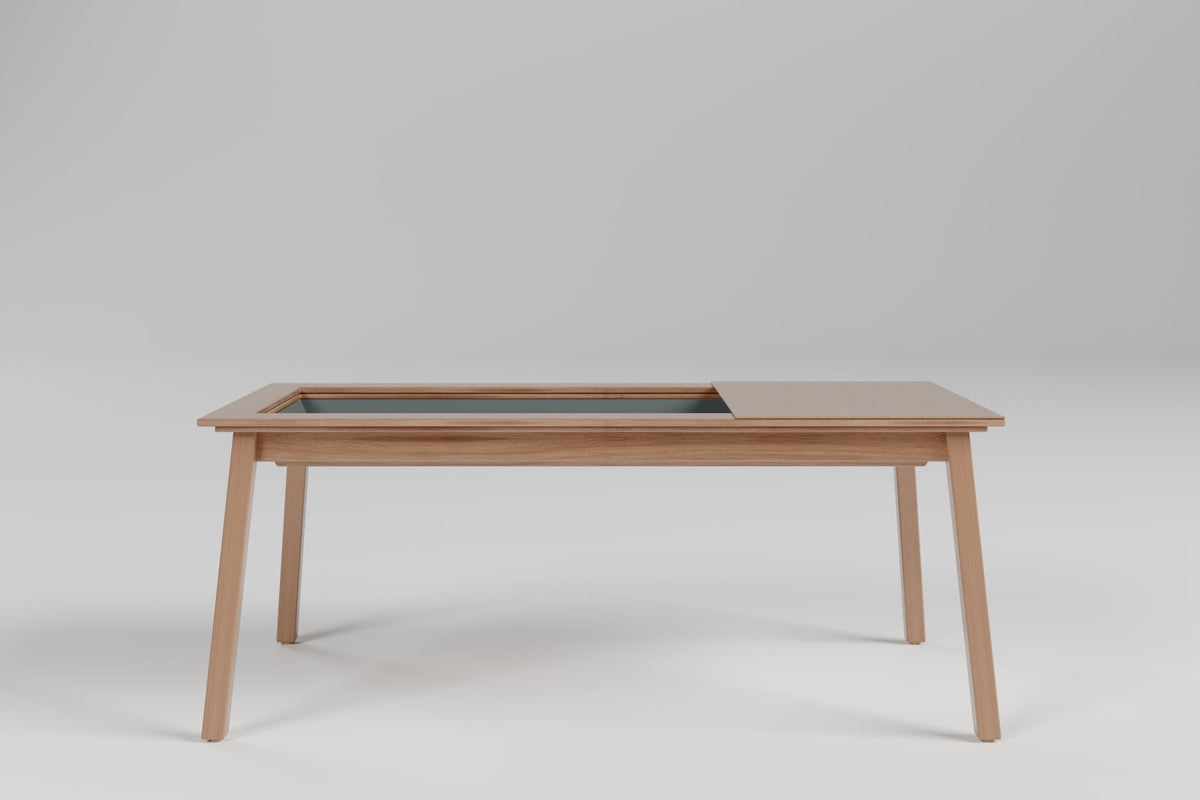History of Novuss
Novuss, also known as marine billiards or koroona, is a unique tabletop game that originated in the Baltic region, particularly in Latvia and Estonia, around the late 1920s. The game was inspired by similar games played in local pubs by seamen during their visits to England. The first tables were constructed based on designs brought back from these trips. Novuss quickly gained popularity in port cities like Ventspils, Liepaja, and Tallinn, and its rules were formalized with the first championship held in Latvia in 1932.
During World War II, the game experienced a temporary decline but saw a resurgence afterward, spreading to various countries including the United States, Canada, Germany, and Israel. Today, Novuss is recognized as the national sport of Latvia and is played competitively in several open championships across North America.
How to Play Novuss

Novuss is played on a rectangular table with holes in each corner. The objective is to pocket all of your discs (also called pucks) into these holes before your opponent does. Here are the essential rules and gameplay mechanics:
Game Setup
- Players: Novuss can be played by 2 to 4 players.
- Equipment: The game uses flat wooden discs (usually red and black) and a striker (a smaller disc used to hit the pucks). Players also use a cue stick to strike the discs.
- Initial Setup: Players arrange eight discs in a continuous row touching each other along the edge of the table, with four on each side of the center line.
Starting the Game
- Determining First Move: The first player is usually determined by a coin toss or by taking turns striking the striker to see who can get it to rebound the shortest distance from the opposite edge.
- Blind Zones: The striker must be placed within a designated "blind zone" on the player's side of the table before making a strike.
Gameplay Mechanics
- Making a Strike: A player strikes the striker with their cue stick aiming at their own discs. Successful strikes allow players to continue their turn.
-
Direct and Rebound Strikes:
- Players can pocket their own discs using direct strikes but cannot hit discs located within their blind zone directly.
- Rebound strikes are allowed where the striker must touch at least one edge of the table before hitting any disc.
- Winning the Game: The player who successfully pockets all of their discs first wins. If a player fails to pocket any disc during their turn or commits a foul (like pocketing their striker), they lose their turn and may incur penalties.
Penalties
Players can incur penalties for various infractions such as:
- Pocketing their own striker.
- Failing to touch any disc with a strike.
- Hitting an opponent's disc into a blind zone.
In such cases, penalty discs may be placed back on the table according to specific rules.
Conclusion
Novuss combines elements of skill and strategy, making it an engaging game for players of all ages. Its rich history and cultural significance continue to foster its popularity in various regions around the world.





0 comments